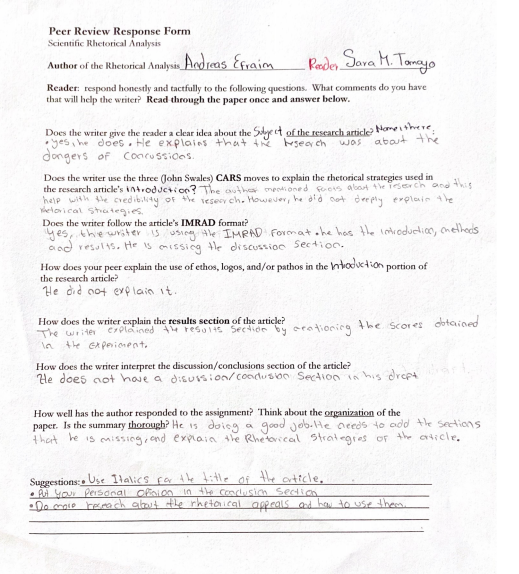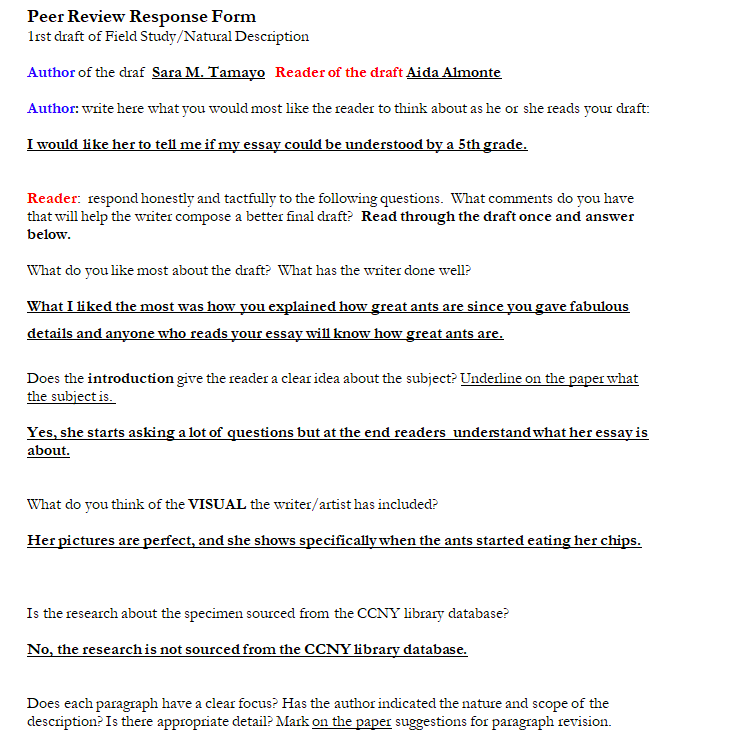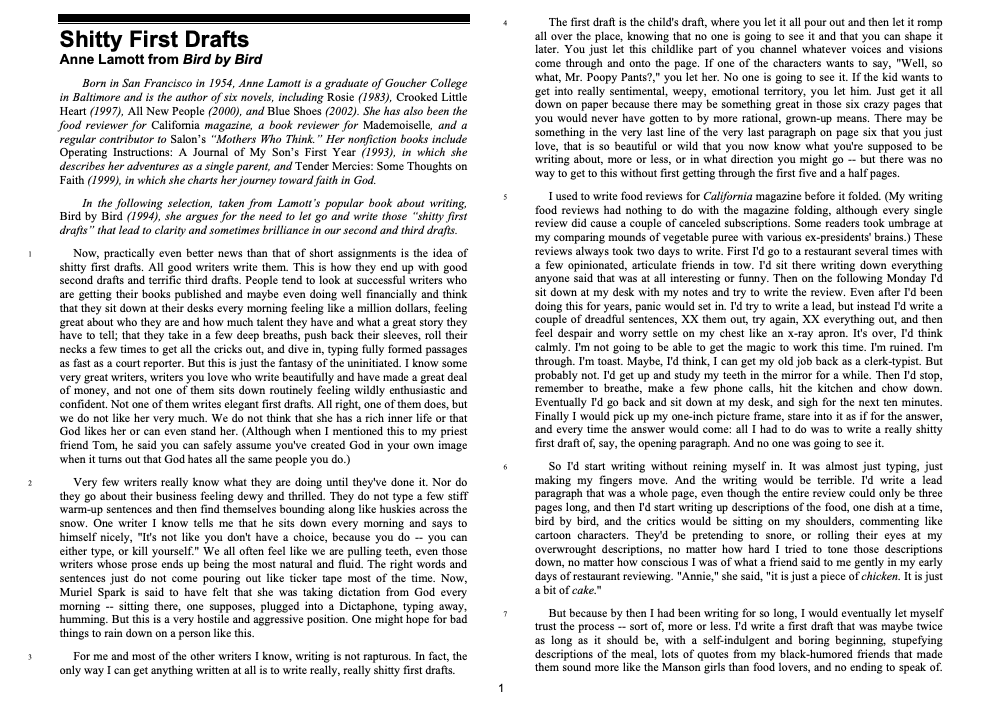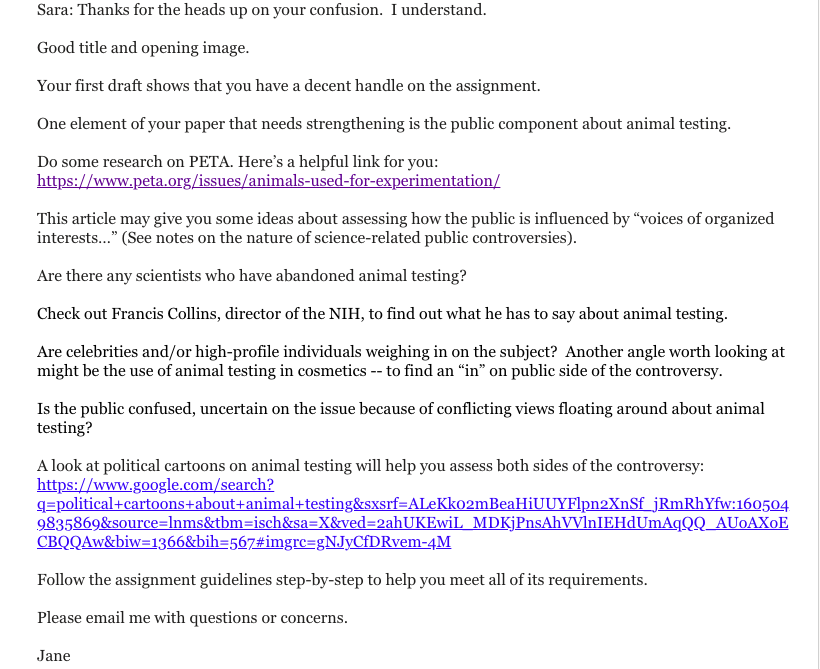Dear Professor Bolster,
Ever since I came to this country, I have felt very anxious in all my English classes. Writing for the sciences was not an exception. Before the start of the semester, I was nervous, thinking that maybe I would not do well. I never took a science writing course before, and the anticipation was killing me. However, from our first day of class, I realized how a fantastic Professor you are. You made me feel comfortable in class. You gave me confidence, and most importantly, you never made me feel like an outsider. For all of this, I am very thankful. You were patient, clear, organized, and you showed that you truly cared for your students. These qualities are very hard to find nowadays. I appreciate all of this a lot. Thank you so much for all your support through this difficult semester.
I enjoyed writing all of our assignments, and I learned a lot. They were not easy. All of them had their respective level of difficulty. However, you always gave very detailed instructions that helped a lot in completing them. All of our assignments were different, and I feel like I could fulfill all of our learning outcomes in many different ways. I will explain this in the following paragraphs.
Course Objectives
- Acknowledge your classmates’ and your own language differences as a resource – practice ways to cooperate with one another to improve and develop your writing skills.
Receiving and giving feedback to my peers helped me understand the mistakes that I was making in my papers, and it also helped me to be more organized and clearer. I accomplish this objective when doing peer reviews.
Peer Review
- Improve your approach to reading, drafting, revising, editing and self-reflection.
I accomplish this objective by writing and editing all of the drafts for each one of our papers. I also remember reading “Shitty First Drafts” by Anne Lamott. It was a really helpful reading. It gave me more confidence in writing future papers. Also receiving your feedback on each of our drafts was very helpful. You guide us towards success with your comments.
- Determine your own writing goals. Develop and strengthen an appreciation for different audiences. Identify the audiences who will read your writing — and work to understand them.
The paper that made me realize the importance of the audience was definitely the Field Study Paper. For this paper, we had to choose either a 5th grade audience or a 9th grade audience. When thinking about the difference between these two audiences, I learned that I have to use different languages and types of approach in each paper that I write—all of this to write an accurate paper that my specific audience can understand.
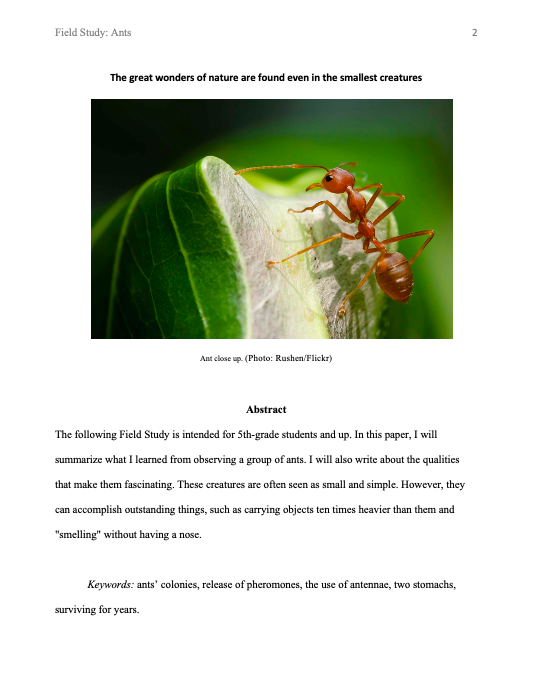
- Define Rhetorical Situation, Tone and Purpose, Genre, and Stance in your own words via class discussions, assigned readings, and writing exercises. Formulate and articulate a stance through and in your writing.
I used to have a lot of issues when trying to identify the rhetorical situation in a reading. However, my knowledge of this increase when I was writing the Scientific Rhetorical Analysis. The use of the CARS model and the analysis of the articles in each journal, helped me to understand the Rhetorical Situation that was being used by the authors.
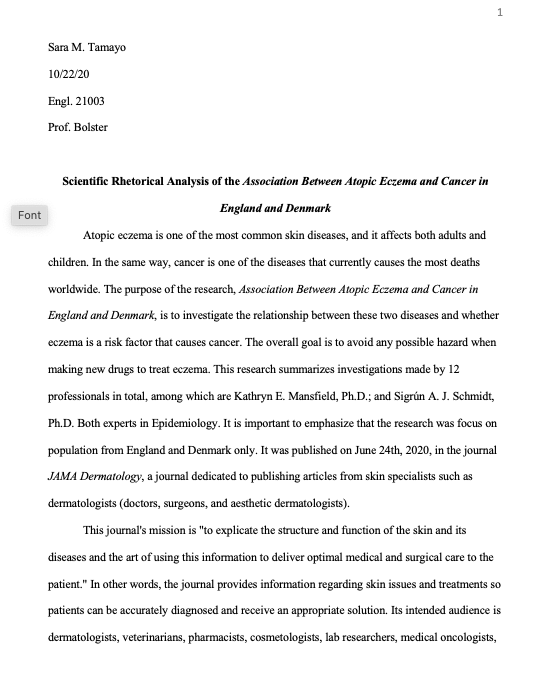
- Collaborate with your classmates on writing projects: research papers, presentations and peer reviews.
When working with my classmates, I not only learned about organization, but I also learned about responsibility. We all have different occupations, and it is essential that we send everything on time to avoid inconveniences.
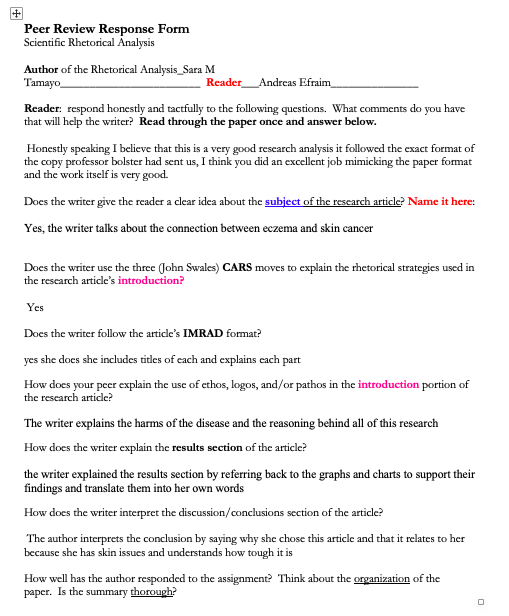
- Study and practice various genres and modes of expression (visual and oral, included) to explore strong writing across science contexts and beyond.
During the semester, we were given different resources. Each of them helped me understand the different genres and modes of expression that we can use to reach an audience. One of these resources was the video about Greta Thunberg. Another one was Jake Verter’s visit to our class. Reading the New York Times was very helpful as well.

- Use CCNY’s library resources and online databases/the Internet to locate sources appropriate to your writing projects.
The use of the databases from the CCNY’s library was very helpful for both the Controversy Paper and the Scientific Rhetorical Analysis. It was easier to find research papers and journals related to the topic that I was needing.
- Practice and strengthen summarizing, paraphrasing, quoting, analyzing, synthesizing, and citing sources by completing assignments, readings, and in-class exercises.
After the competition of each assignment, I always learned something new and significant. For the Field Study paper, I learned about the importance of the audience. In the Controversy Paper, I learned about the importance of quoting and giving each author credit. The Scientific Rhetorical Analysis helped to understand the Rhetorical situation, and the I/I/I paper was beneficial because I had more freedom, so I had to come up with my own ideas and research about the person I was interviewing.
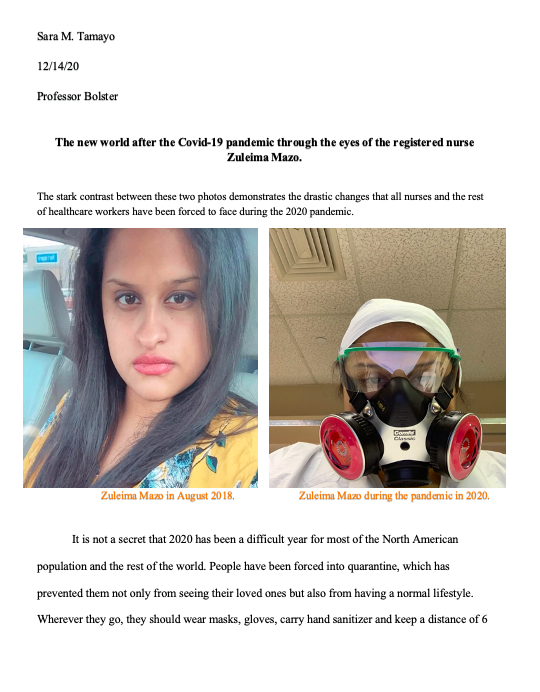
- Create a digital portfolio
The creation of this portfolio was very helpful when reflecting about my own work. I could see the improvement in each one of my papers and all the learning process I have been through during this semester. It was also a very different and refreshing assignment compared with the previous ones that we had to do.
This semester was not an easy one. We were living during a pandemic. Both students and Professors had to face many difficulties, from not having good technology devices to quarantine issues. Despite these inconveniences, I was able to enjoy this class and my learning process. Most of this was because of how understanding you were. The class environment, the resources provided, the emails with feedback, and all your support helped me finish this class with good memories and appreciation. Once again, thank you, Professor Bolster. I really hope we can meet in person in the future.
Sincerely,
Sara M. Tamayo
